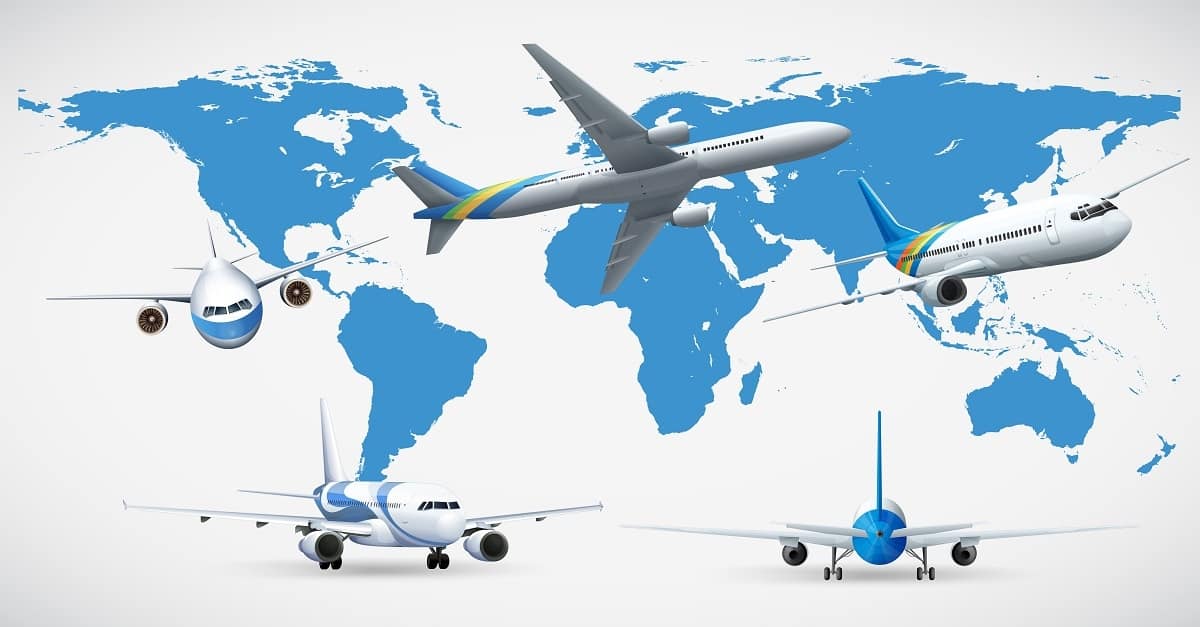It is of high prestige that, nearly 9.5 lakh Indians have returned from abroad under the Government’s “Vande Bharat” evacuation mission, making it the most massive sustained operation for the repatriation of Indians stranded overseas. Till July 30, the Air India Group had repatriated more than 271,910 passengers on 1,461 flights from around 53 countries. And, the airline expected to operate close to 700 flights and its subsidiary Air India Express to repatriate 1.2 lakh passengers between India and at least 53 countries during the fifth phase.
Before Vande Bharat Mission, India had a long history of six evacuations during wars and natural disasters. Air India, played the dominant role India in rescue and evacuation operations at Libya in 2011 and Yemen in 2015. Evacuation from Brussels in 2016 was by Jet Airways.
The most significant ever evacuation exercise worldwide was in 1990-91, Air India along with partner carriers repatriated 111,711 stranded Indians from Kuwait on 488 flights. But all these six rescue missions was free and was to save the lives of Indians stranded aboard at various countries due to political issues, wars and other disasters.
When all airlines companies in India has significantly impacted due to the coronavirus pandemic, the Civil Aviation Ministry has entrusted the national carrier – Air India and its subsidiary Air India Express to operate Vande Barth Mission’. Though, private operators also become part of VBM; Air India cartelized and monopolized trunk routes. A well-known fact that Vande Bharat Mission is an economic rescue package or stimulator to the cash strapped national carrier. Probably, a new 10th freedoms of the air, granting a country’s airlines to enter and land in another country for evacuation and charge passengers for repatriation.
The radical move of Vande Bharat Mission to bilateral “Air Bubbles” significantly smoothed resumption of international flight operations. When the USA and some European countries smell the commercialism in VBM operations, they demanded a bilateral contract. And, Union Civil Aviation Ministry’s stepping to resume international travel through bilateral air bubbles between select countries such as US, France and Germany, after almost 4-months of its suspension brought cheers from all over the world. Proudly announced that the new air bubble agreement is creating competitions, and dropped ticket prices to rupees 75000 from one lakh above for the westbound, 75000 to 45000 for European sectors. Indicatively, few other Indian and foreign carriers too joined the bandwagon –the repatriation mission.
In the aviation industry, travel agencies play a vital role in promoting the airline’s market share. Agents sell 80 % of the Industry’s tickets, and agents in India always supported Air India and Air India Express in their good and bad days. While Agents participation for the 4th phase of VBM was very nominal, for the 5th phase, Government, as well as Air India, fully allowed Agents to sell tickets through GDS inventory. However, Agent’s access to the airline inventory through the GDS for the long haul flights often used to be responded as “sold out”. Also, passengers complained that at many times Airfares are not shown on the airline website. All flights, once open for sales, used to get closed within 10 minutes or so with the remark “sold out”. Besides, certain long haul flights show the availability in higher booking classes only, irrespective of the government announcements.
The unknown fact was that Vande Barat Mission fights are fine-tuned for the national carrier Air India to make economic benefits. The airfares on VBM flights are sectorial, unique and constant, as controlled by the Ministry and coordinated by air India. These are structured ferry fares calculated and articulated by the Government and do not fall commercially under “yield management” or any revenue-based data control. The quoted prices show as Net – Net without any “commission” or service charge” to the Travel Agents whose survival is on the remuneration earned in selling the ticket.
Whereas in the Global Distribution System, to access inventory control has a real-time interface to the airline’s yield management system (revenue-based data control) to support a continual optimization of the offered booking classes in response to changes in demand or pricing strategies. The Air India nexus, leverage “favoured Agents” to hoard seats, sell tickets till flight closure, and market through a network of their offline and online franchisees or sub-agents spread over the country.
The DGCA order on March 5, 2010, and Secretary, MoCA Order on September 16 2013, in the matter of IAAI Vs DGCA and IAAI Vs Federation of Indian Airlines (FIA); re-defined the term “Commission”, “Transaction Fees”, “Convenience Fees”, or any other terms used for the payment of remuneration to the travel agent or the intermediaries for the services rendered by them treated as “Commission” will corroborate with existing rule 135 of Aircraft Rules, 1937 as a part of Tariff to be determined by airlines. It established that remuneration to intermediaries for services rendered by them to passengers on issuing tickets on behalf of the airlines are permissible under the existing rules’, provided, these shown as part of Tariff within the definition of “Tariff”, and no amount will collect from the consumers over and above this.
Despite this, national carrier Air India repeatedly blamed Travel Agents for overcharging the passengers and even gone to the extent to issue a circular on 29.07.20 declaring that VBM flights are purely evacuation, and directed to cross-check VBM website for price verification. Moreover, the Circular warned Travel Agents on overcharging and cautioned that authorized Agent would be fully accountable for the transactions of their sub-Agencies.
According to MoCA, “travel bubble” is a temporary arrangement between two countries aimed at restarting commercial passenger services when regular international flights suspended as a result of the COVID-19 pandemic. They are reciprocal, meaning airlines from both countries enjoy similar benefits and all the airlines are permitted to sell tickets between the respective two countries through their websites, sales agents and Global Distribution Systems. And, MoCA is in the process to set up “travel bubble” with 13 more countries in addition to the USA, UK, Canada, Germany, UAE and Qatar.
Hence, how Air India, being the National Carrier, presently surviving on taxpayer bailouts, demand or instruct Authorized Travel Agents in India to refrain from charging SERVICE FEES from their Customers! Especially in a scenario, wherein the national carrier itself is depriving or denying the legitimate “commission” or “remuneration” to the travel agents or the intermediaries, which is defined as an integral part of the FARE which forms the TARIFF under the Aircraft Rules 1937.
When passengers complained against VBM ticket fares, the MoCA being the regulator should have prima fascia investigated the matter, instead of advising customers to cross-check the VBM websites. An investigation would have proved that the national carrier is exploiting passengers by overcharging through migrating real-time inventory with revenue management.
When passengers complained against VBM ticket fares, the MoCA being the regulator should have prima fascia investigated the matter, instead of advising customers to cross-check the VBM websites. An investigation would have proved that the national carrier is exploiting passengers by overcharging through migrating real-time inventory with revenue management.
We at IAAI, appeal to the Travel industry stakeholders to strongly protest against the unhealthy commercial policies of the Air India and all other carriers, especially in a business model which built upon the association of Principal and Agents. With VBM shifting to travel babbles, airlines revenue secured and enhanced according to the growing demand, whereas travel agents deprived of remuneration – neither the commission nor service charges. Many travel and tourism agents in the country have already closed down and rest on the verge of closing.
Travel & Tour Agents are the extended arms of airlines, and no airline can survive without Agents and vice versa, both are the TWO sides of the same coin. If we are UNITED together and stand for our rights, we can achieve a lot and can do miracles. The Law of the land, as well as the Regulatory orders, are expressively in favour of Travel agents legitimate eligibility for “COMMISSION”. We urge Travel Industry stakeholders including other National Associations to come forward to demand our legal right of COMMISSION as provided in the Aircraft Rules 1937, which in turn will curtail the probable complaints from Passengers regarding Service Fee discrepancies.
Follow and connect with us on Facebook, Twitter, LinkedIn, Instagram and Google News for the latest travel news and updates!
Also Read: TAAI Alleges Air India Plays Dirty With Travel Agents





